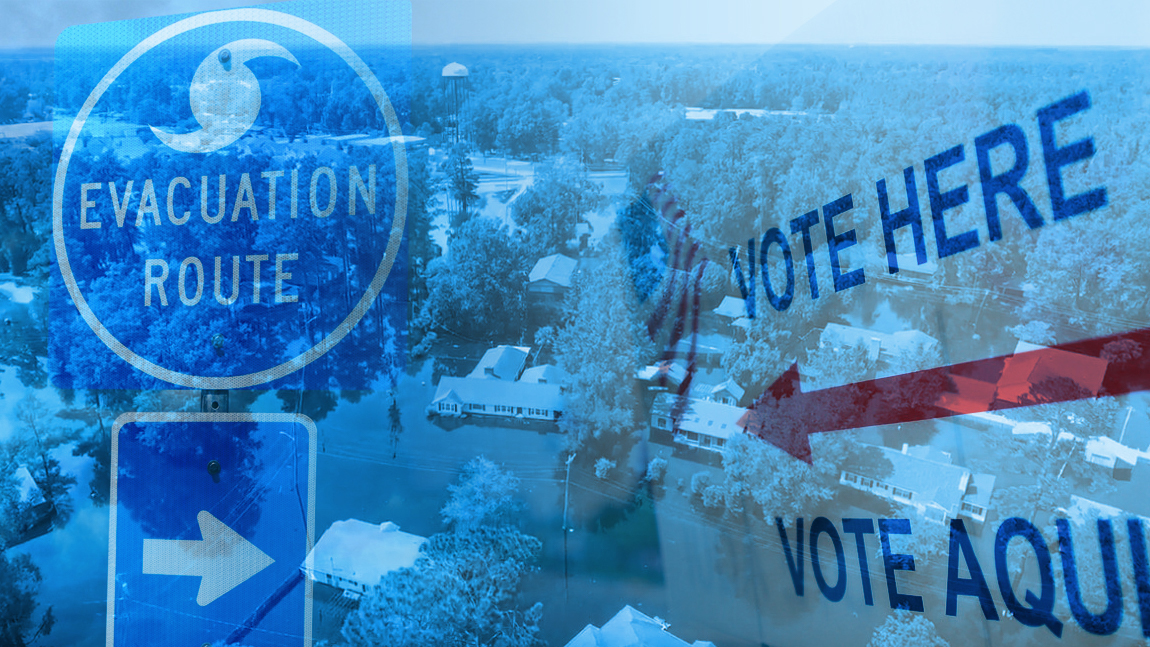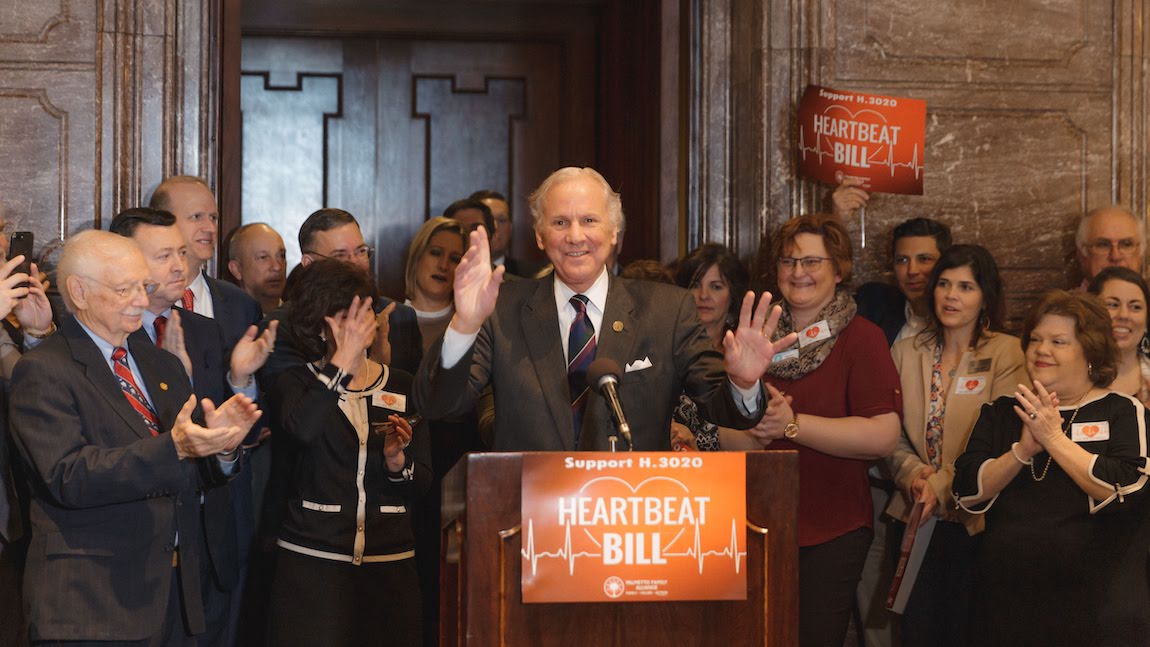Each month The North Strand Democrats Club provides a Legislative and Issues Update compiled by David Higham. HCDP will publish these updates as they are received.
HORRY COUNTY GOVERNMENT
A County Council workshop on Imagine 2040 comprehensive plan was held Thursday, November 21 at the Government and Justice Center. The draft plan offers a vision and land use map that is intended to guide future development and public services decades into the future. Details can be found at: https://www.horrycounty.org/Departments/Planning-and-Zoning/IMAGINE2040
Horry County’s plan to privatize 3 recreation centers on hold: Plans to move forward to contract with a private company to operate the recreation centers has been stalled as the Council was informed that privatization could risk the tax-exempt status of loans used to build the centers. With privatization, those bonds could run the risk of becoming taxable, driving up costs for the county. Concerning the overall plan, Council Member Al Allen is worried that a private company will need to raise usage fees in order to turn a profit and consequently price-out working-class families and the elderly. The Council hopes to resolve the tax-exempt questions and further debate the plan in January. (MyMyrtleBeachOnline 11/15/19)
STATE / SC LEGISLATURE
South Carolina Budget Surplus: Crediting a growing economy, state budget forecasters predict that the S.C. general fund budget (that starts July 1, 2020), will have $10.2 billion. This is nearly $2 billion more than what lawmakers had available to spend last year. Of that new money, $815 million is recurring and some lawmakers and Gov. Henry McMaster have suggested it might go toward teacher raises. Another $1 billion of the new money is strictly for one-time costs, which lawmakers have suggested might help pay for security upgrades at the state’s prisons and deferred maintenance at universities. McMaster and various lawmakers have also spoken in favor of using the surplus to enact tax cutting reforms. (The State newspaper 11/8/19). A spokesman for McMaster said the governor’s office is in talks with the General Assembly “to determine exactly what the tax cut will look like”. (Post and Courier 11/14/19)
Rape, Incest exceptions put back in SC Abortion Ban bill: The Senate Medical Affairs Committee advanced the “Fetal Heartbeat Protection from Abortion Act”, restoring exceptions for women who are victims of rape and incest (if the crime is reported). The bill also has an exception to safeguard the life of the mother. The bill’s next step is the state Senate floor for a potential 2020 election year fight. The proposed bill would make almost all abortions illegal once fetal cardiac activity is detected, usually around six weeks after conception.
According to A.P. reporting, “even with the rape and incest exceptions restored, the bill faces an uncertain future next year because some more moderate Republican senators don’t want to waste days fighting over it with Democrats. They’ve suggested that “lawmakers should instead wait to see what happens with the similar laws in other states and move forward only if bans elsewhere withstand legal challenges”. (Associated Press, 11/5/19; Post and Courier 11/6/19)
Cell Phone Use While Driving: A Senate transportation subcommittee heard testimony on a revived effort to keep cell phones and other electronic devices out of the hands of S.C. drivers. Currently state drivers are banned from texting, but can still talk on the phone, use their GPS and legally text while stopped. The proposed bill would levy fines and driver license points on violators found to using their cell phones while driving. Hands-free calls and dictated texts would still be allowed. A 2018 version of the bill reached the S.C. House floor but did not get a vote before the session ended. (Post and Courier 10/30/19)
2020 Election may see close races not called for many hours or days: The issue is the new hands-on, labor-intensive method of counting absentee votes that is the result of switching to paper ballots. Under the new paper ballot system, absentee ballots filled out in the 30 days before the election will get marked, sealed in envelopes and kept under wraps until 9 a.m. on Election Day, when state law says the counting may begin. In the 2016 presidential election, an estimated 500,000 people voted absentee statewide, or about 25 percent of the total turnout. If that number of absentee votes is matched or exceeded in the 2020 election, South Carolina could be faced with a counting mess, according to recent reporting. Reportedly, the Legislature and the State Election Commission review possible solutions beginning in January. (Post and Courier newspaper, 10/12/19)
FEDERAL / US CONGRESS
Government Shutdown? President Trump signed a stopgap funding bill November 21 to ensure that government programs do not expire. Congress was supposed to pass a new budget by October 1; failure to do so means the government has been operating on stopgap measures and funding was due to expire on November 21. The bill funds government programs through December 20 and Congress must pass a new measure by then to avoid a shutdown. However, the White House and congressional Democrats continue to9 fight over including billions of dollars for border wall construction. The Washington Post, 11/21/19. (Limited free views each month, then subscription needed to view.)
Voting Rights: Also in November the House plans to advance H.R. 4, legislation that will restore the Voting Rights Act to its full strength after it was undermined by the Supreme Court’s Shelby County v. Holder decision in 2013. (Roll Call 11/8/19). If enacted into law, H.R. 4 would restore the Voting Rights Act most important enforcement mechanism which said that states and localities with a history of racial discrimination must first get approval from the US Justice Department or a federal court before making any changes to their voting laws or practices. (House Judiciary Committee 10/23/19)
Prescription Drug Pricing: H.R. 3, providing for prescription drug pricing overhaul, is likely to be considered in December on the House floor. The bill would require the federal government to negotiate prices for certain drugs (current law prevents this). The negotiated prices must be offered under Medicare and Medicare Advantage plans and may also be offered under private health insurance unless the insurer opts out. (Roll Call 11/8/19; Congress.gov)
Refugees: President Trump has signed off on a plan that continues a dramatic drop in the number of refugees taken in by the U.S. to no more than 18,000 in fiscal year 2020. In the last full year of the Obama administration, the refugee ceiling was 85,000. This year the Trump administration set the limit at 30,000. That number was the lowest since the modern resettlement program’s creation in 1980. (Associated Press 11/2/19)
Citizenship Application Fees to Increase: The Trump administration wants to raise costs to become a U.S. citizen by 83 percent. This would apply to the roughly 9 million immigrants eligible to become U.S. citizens. The citizen application fee would go from $640 to $1,170; and fees associated with legal permanent residency will go up 79 percent – from $1,220 to $2,195. (NBC News 11/14/19)
THE COURTS
Trump’s Taxes and Congressional Authority: Attorneys for the president asked the Supreme Court to reverse an order from a federal appeals court in New York that requires accounting firm Mazars USA to comply with a state subpoena for Trump’s financial and tax records.
Also landing before the Supreme Court is another Trump lawsuit centered on congressional power to enforce subpoenas during impeachment and other oversight probes (Roll Call newspaper 11/14/19)
Sandy Hook Shooting: The Supreme Court has ruled that a survivor and relatives of victims of the Sandy Hook Elementary School shooting can pursue their lawsuit against the maker of the rifle used to kill 26 people. The case is being watched by gun control advocates, gun right supporters and gun manufacturers across the country because of its potential to provide a roadmap for victims of other mass shootings to sue the makers of firearms. Up to this point gun manufacturers have been largely shielded by a 2005 federal law preventing most lawsuits against firearms manufacturers when their products are used in crimes. (Post and Courier 11/13/19)
Border Wall: The Trump administration is preparing court filings to begin taking over private land to build the wall along the US – Mexico border. According to reports most of the border land in Texas, unlike other border states, is private and has been passed down through families for generations. (NBC News 11/14/19)
Questions? Contact David at dhigham32@gmail.com






